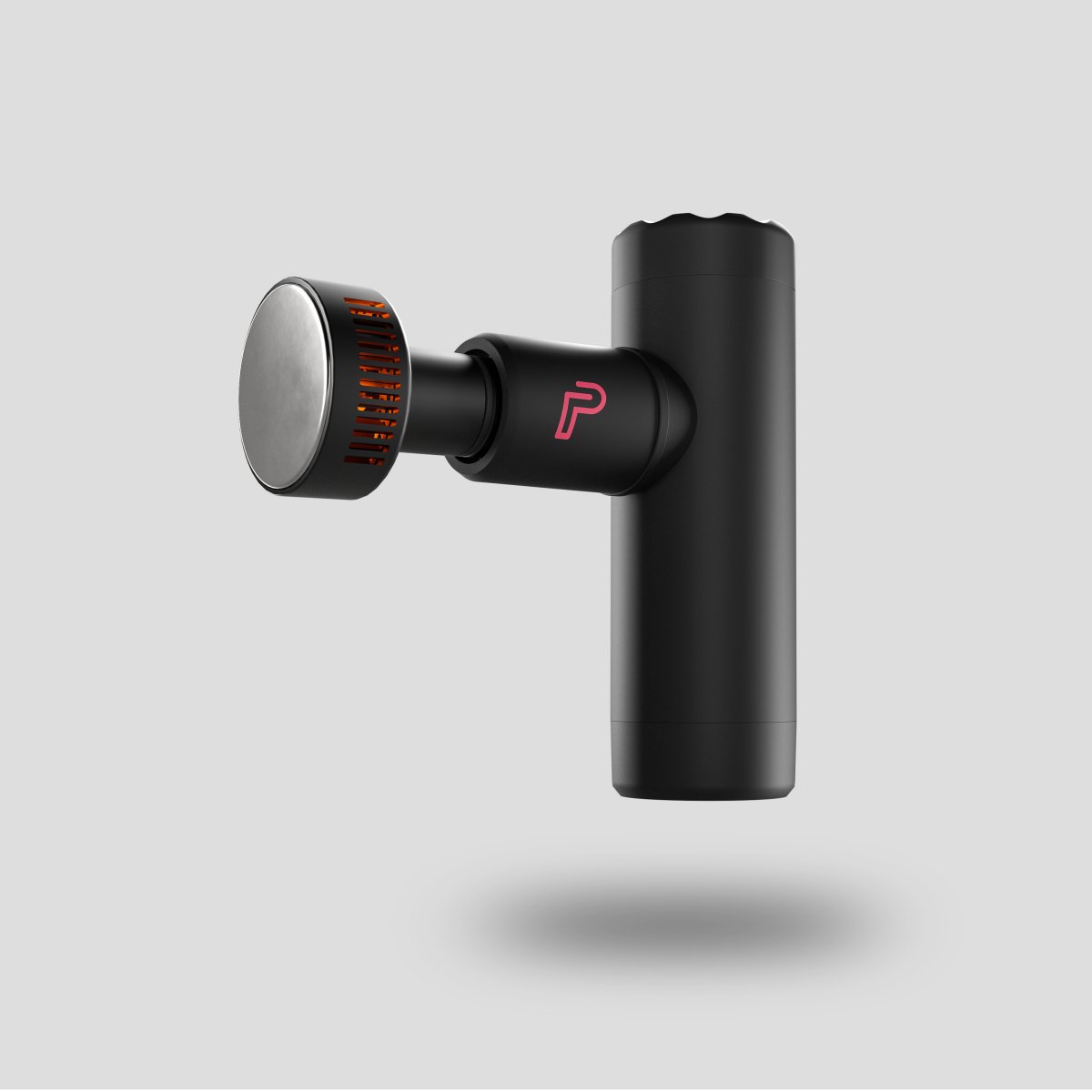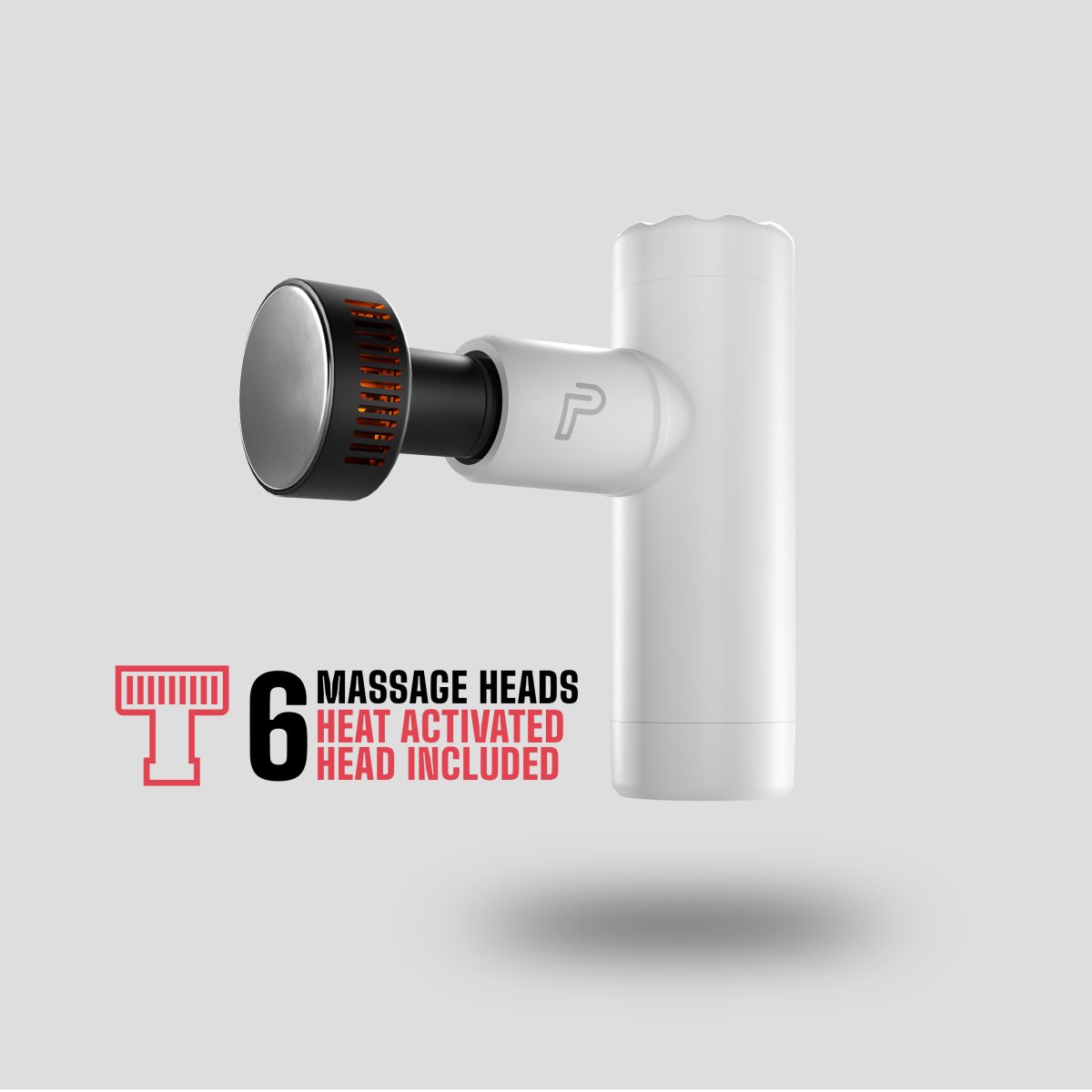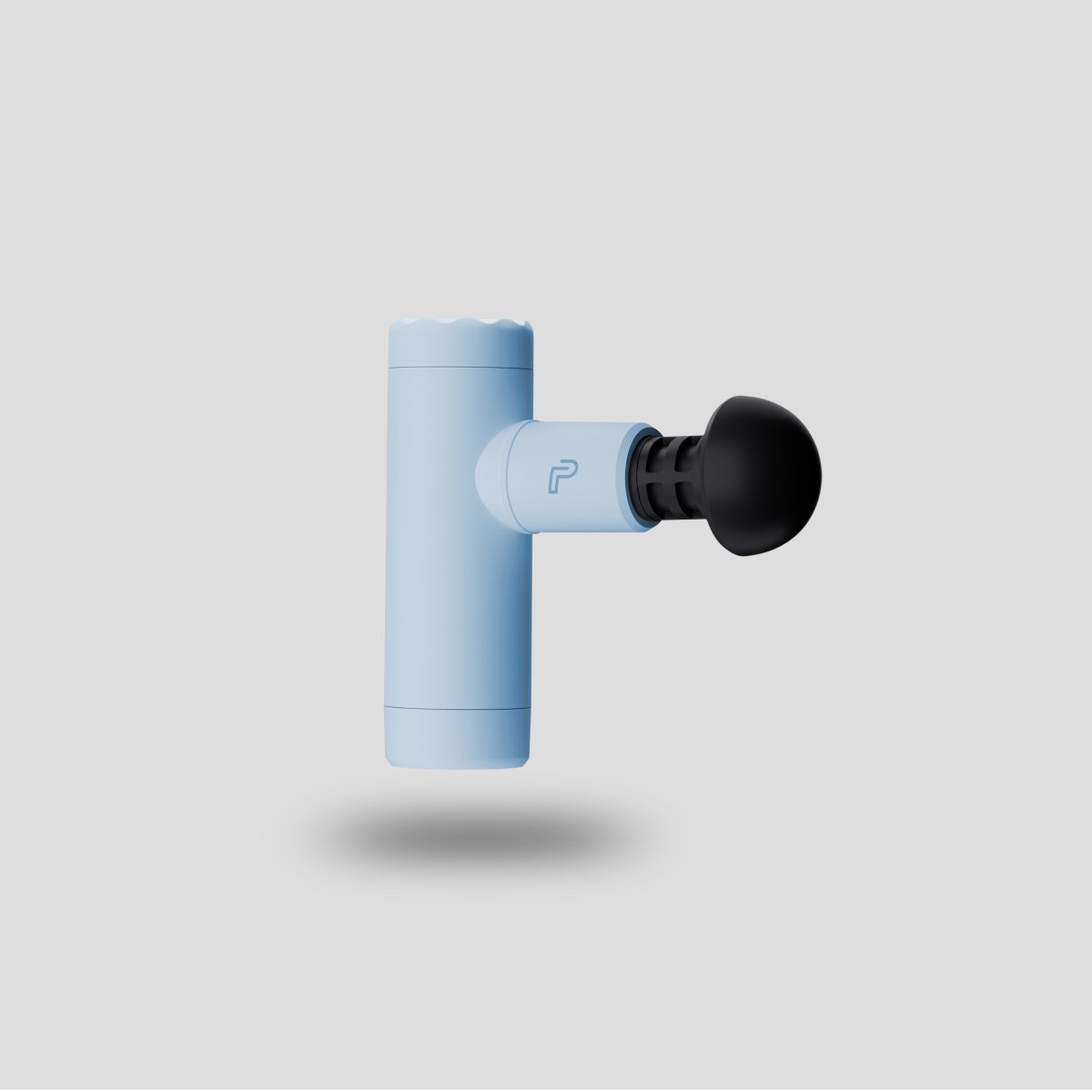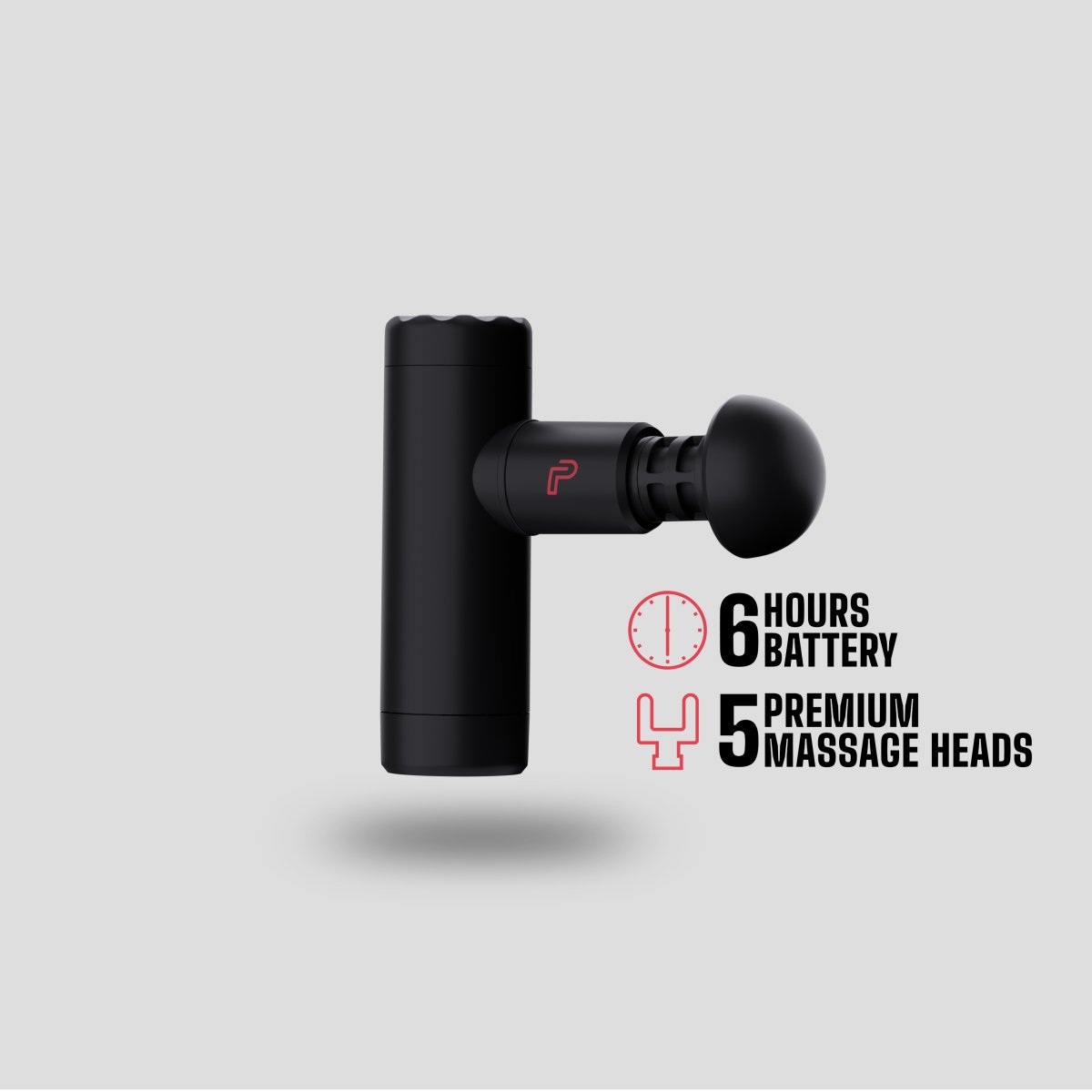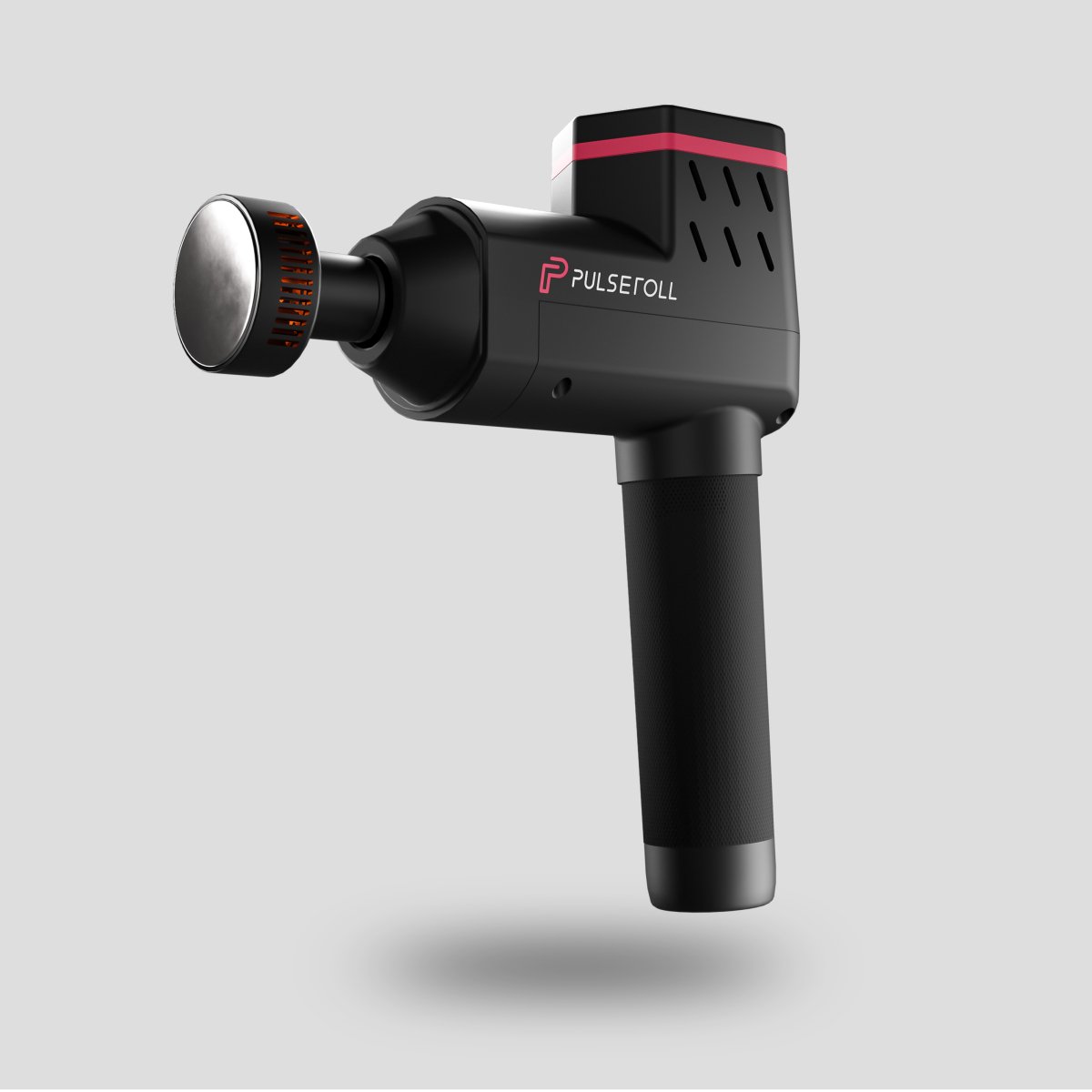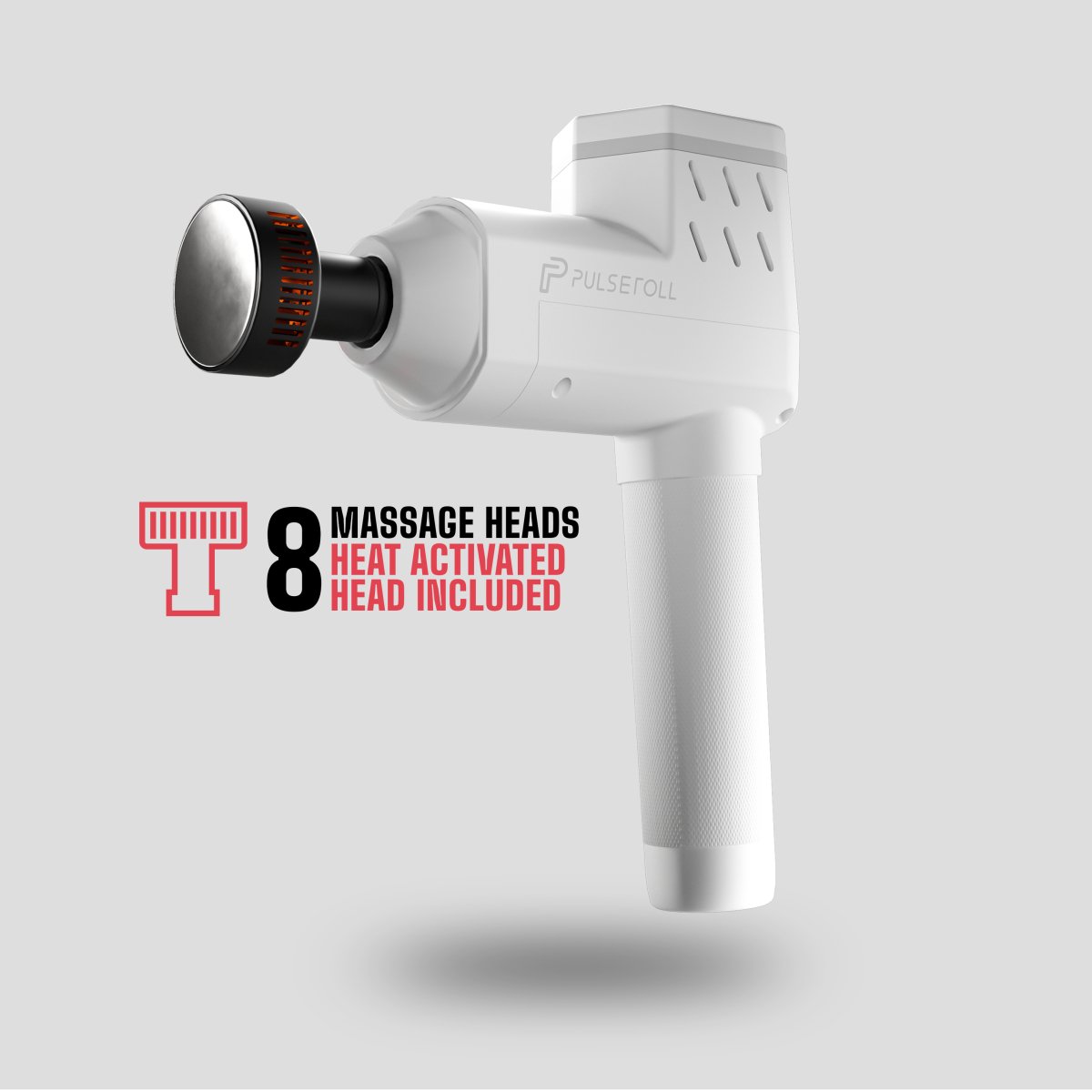In this article, we'll cover:
- What is a pinched nerve and what causes it?
- Where are pinched nerves located?
- What are the symptoms of a pinched nerve?
- Can a massage help a pinched nerve?
- How does massage ease a pinched nerve?
- Can a massage make a pinched nerve worse?
- Can handheld massagers help with pinched nerves?
- Basic rules of using a handheld massager for pinched nerves

What is a pinched nerve and what causes it?
A pinched nerve, or nerve compression, is a fairly common problem that is estimated to affect as many 85 in every 100,000 people (1). Pinched nerves occur when either bones or soft tissue place pressure ont nerve roots, causing a range of painful and debilitating symptoms.
Pinched nerve caused by spinal compression
One of the most common causes of a pinched nerve is spinal compression. This most often occurs as a result of a herniated disc, which is when one or more of the intervertebral discs that acts as shock absorber between the bones of the spine slips out of place and puts pressure on the surrounding nerves.
Pinched nerve caused by repetitive strain injury
Repetitive strain injuries occur when you perform the same movement over and over, and this causes tightness in the muscles that then place pressure on specific nerves. Carpal tunnel syndrome is a good example of a pinched nerve caused by repetitive strain, since it occurs when repeated movements in the wrist place pressure on the median nerve that runs down the arm and into the hand. When the median nerve becomes compressed, it causes symptoms associated with a pinched nerve.
Other causes of pinched nerves
Some of the other causes of pinched nerves include:
- Rheumatoid arthritis: since inflammation in the joints that is characteristic of this condition can place pressure on nearby nerves.
- Obesity and pregnancy: carrying extra weight can cause nerve pathways to swell, placing extra pressure on the nerves.
- Diabetes: persistently high blood sugar levels have been shown to damage your nerves.
Where are pinched nerves located?
Pinched nerves can happen anywhere in the body, but there are some areas where they are more common than others. These include:
- The neck (cervical spine)
- Upper middle back (thoracic spine)
- Lower back (lumbar)
- Wrist, hand and elbow (usually a result of carpal tunnel syndrome)
What are the symptoms of a pinched nerve?
There are a number of different symptoms that can indicate that you have a pinched nerve, including:
- Pain radiating outwards from the affected area, which can be acute or dull and persistent
- Numbness
- Tingling sensations, similar to ‘pins and needles’
- Muscle weakness
- Sensation that your hand or foot has fallen asleep and isn’t ‘present’
These symptoms may be worse while lying down or immediately after waking up.

Can a massage help a pinched nerve?
Many people wonder, ‘will a massage help a pinched nerve’? Although a pinched nerve may start to ease itself, the good news is that massage can accelerate the healing process and get you faster relief from your symptoms.
Massage is a non-invasive technique that has been used for thousands of years and involves the kneading and manipulation of muscle tissue to reduce pain, eliminate specific issues such as a pinched nerve and improve your general health and wellbeing.
There are different types of massage, from the type delivered by therapists using their fingers, hands, arms and elbows, to percussion therapy massage, which deliver the same effects as regular massage, but using a handheld device in the comfort of your own home.
How does massage ease a pinched nerve?
Massage works by manipulating the muscles surrounding the nerve in order to release knots and areas of pressure that are trapping and compressing the affected nerves. Exactly how much pressure is needed will depend on how deeply the nerves are located, as well as how tight the surrounding muscle and other soft tissues are.
Can a massage make a pinched nerve worse?
If you have a pinched nerve and are using a massage gun, you should avoid touching the bones of the spine with your massage gun. Provided you or your therapist are careful not to use too much pressure, a massage shouldn’t make a pinched nerve worse. However, you may experience some muscle soreness for a day or two after the targeted massage.
Can handheld massagers help with pinched nerves?
Handheld massagers are a great way to ease pinched nerves yourself at home, eliminating the need to visit a massage therapist, chiropractor or physical therapist. This means that you can carry out treatment as and when it suits you best, and carefully control the level of massage you apply to the area depending on how uncomfortable you feel.

Basic rules of using a handheld massager for pinched nerves
There are several things that you should be aware of when using a handheld massager to treat pinched nerves.
Firstly, make sure that you choose an appropriate head for the area that you’re targeting. A pointed head can be too aggressive, especially if your massager is on a high setting, so a rounded variety may be best unless the pinched nerve is located very deep in the soft tissue. You should also remember to turn your massage gun on before you place it onto your body.
When you use your massage gun, choose a lower intensity and avoid using too much pressure. You should also ensure that you avoid the bones of the spine with the massage gun altogether. For the best results, follow the massage with some gentle stretching exercises.
Our Pro Massage gun and Mini Massage gun are ideal for helping you to treat pinched nerves at home. Visit our product pages to find out more.
Reference List
1 - https://my.clevelandclinic.org/health/diseases/6481-pinched-nerves






